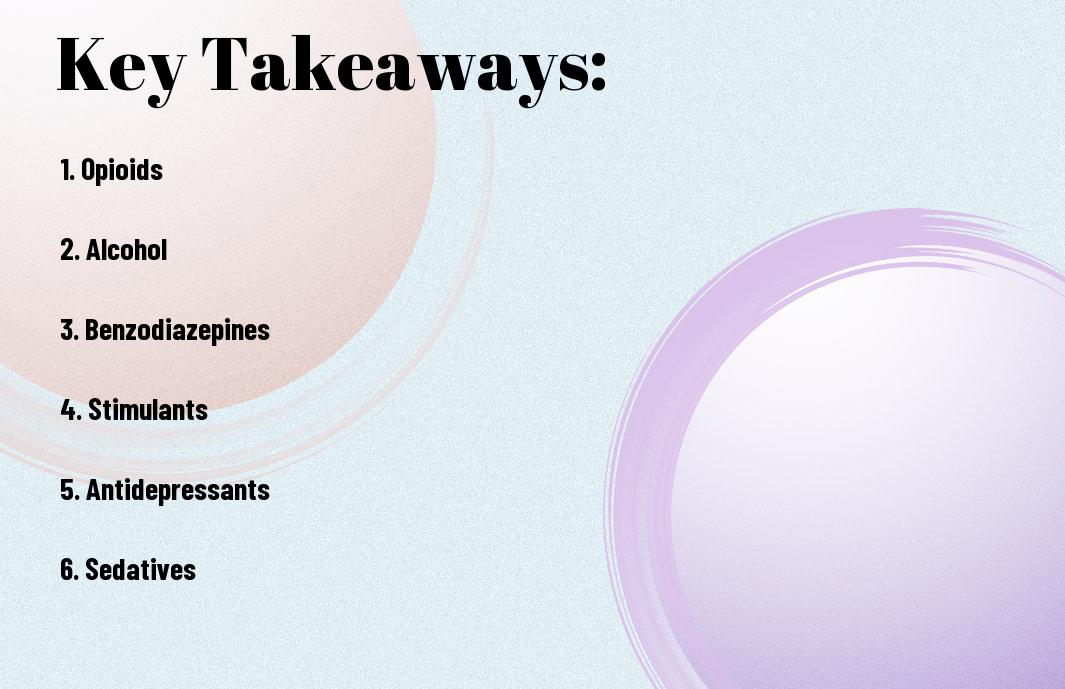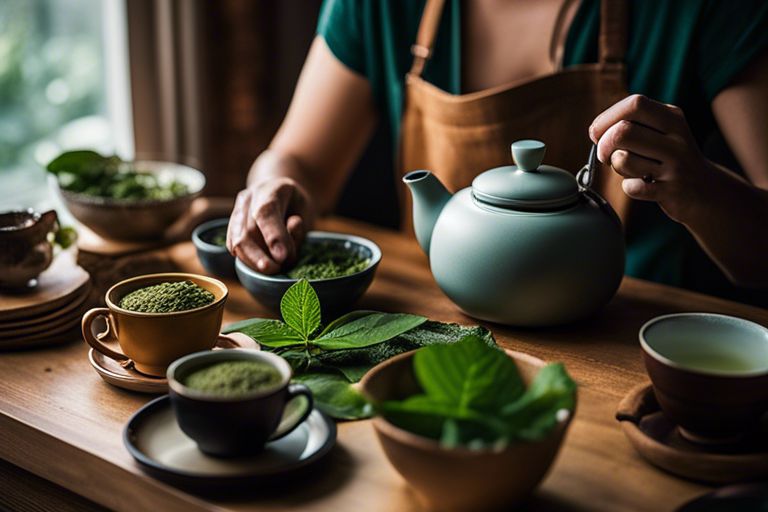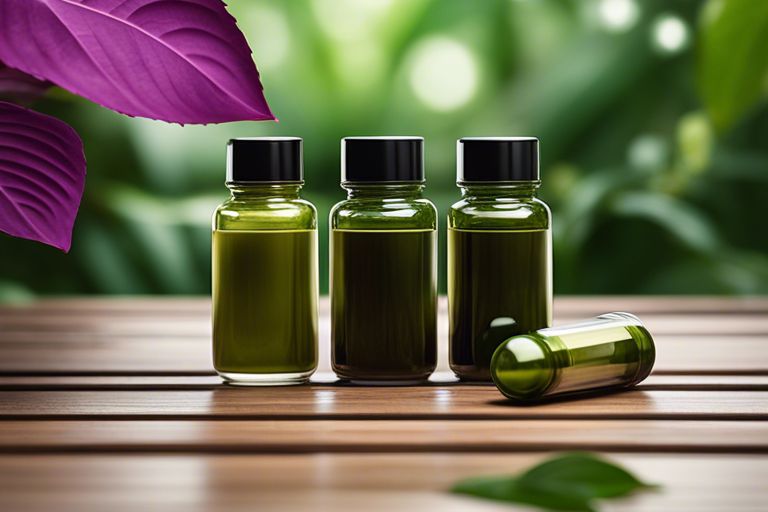Many people are turning to kratom as a natural alternative for pain relief and mood enhancement. However, it’s crucial to be aware of what kratom can interact with to avoid potentially dangerous situations. Understanding kratom‘s interactions with medications, substances, and health conditions is important for those incorporating this herb into their wellness routine. Let’s examine into the important details of what kratom can interact with.
Key Takeaways:
- Kratom can interact with other substances: Kratom has the potential to interact with various substances, including prescription medications, over-the-counter drugs, and even herbal supplements.
- Increased risk of side effects: Combining kratom with other substances can increase the risk of side effects or adverse reactions. It’s important to be cautious and mindful of potential interactions.
- Consult a healthcare professional: If you are considering using kratom or are currently taking it, it is crucial to consult with a healthcare professional to discuss any potential interactions and ensure your safety and well-being.


Kratom Interactions with Prescription Medications
Opioids and Pain Relievers
To understand how kratom interacts with prescription medications, let’s first look at opioids and pain relievers. Kratom contains alkaloids that bind to the same receptors in the brain as opioids, leading to potential interactions with prescription pain medications. It is crucial to exercise caution when combining kratom with opioids, as it may enhance the effects of these medications, which can be dangerous.
Benzodiazepines and Sedatives
Prescription medications like benzodiazepines and sedatives are commonly used to treat anxiety and sleep disorders. When kratom is taken with these medications, it can increase the risk of central nervous system depression. This can lead to side effects such as drowsiness, dizziness, and difficulty breathing. It is vital to consult with a healthcare provider before combining kratom with benzodiazepines or sedatives.
Plus, if someone is already taking benzodiazepines or sedatives, adding kratom to the mix can potentiate the effects, increasing the risk of overdose or adverse reactions. It is crucial to be aware of these potential interactions and to seek medical advice before combining these substances.
Antidepressants and Mood Stabilizers
On the other hand, kratom may interact with antidepressants and mood stabilizers, which are used to treat mood disorders such as depression and bipolar disorder. Combining kratom with these medications can lead to serotonin syndrome, a serious and potentially life-threatening condition characterized by high levels of serotonin in the brain. This interaction can cause symptoms such as confusion, sweating, tremors, and agitation.
Benzodiazepines can also interact with kratom, leading to increased sedation and respiratory depression. It is vital to be cautious when combining kratom with benzodiazepines, as the effects can be potentiated, potentially leading to harmful outcomes. It is recommended to consult with a healthcare provider before using kratom alongside any prescription medications.
Kratom Interactions with Over-the-Counter Medications
If you are considering using kratom, it is important to be aware of its potential interactions with over-the-counter medications. While kratom is a natural substance, it can still have significant effects when combined with certain drugs.
Blood Thinners and Anticoagulants
On the topic of blood thinners and anticoagulants, it’s crucial to exercise caution when using kratom concurrently. Kratom has the potential to increase the effects of these medications, leading to a higher risk of bleeding. It is recommended to consult with a healthcare professional before combining kratom with blood thinners or anticoagulants to minimize any potential adverse effects.
Diabetes Medications
One area of concern is the potential interaction between kratom and diabetes medications. Kratom may affect blood sugar levels and could potentially interfere with the effectiveness of diabetes medications. It is important for individuals with diabetes to monitor their blood sugar levels closely when using kratom to avoid any complications.
It is crucial to speak with a healthcare provider before using kratom if you have diabetes to ensure that it is safe and does not interfere with your current medications.
Blood Pressure Medications
Over-the-counter blood pressure medications can also interact with kratom, so caution is advised when combining the two. Kratom has been reported to have both blood pressure-lowering and blood pressure-raising effects, which can be dangerous when combined with blood pressure medications. It is recommended to monitor your blood pressure closely and consult with a healthcare professional before using kratom alongside blood pressure medications.
Kratom Interactions with Herbal Supplements
After exploring how kratom interacts with medications, it’s crucial to understand its interactions with herbal supplements. Many people use herbal remedies to address various health issues, but combining them with kratom can lead to unpredictable outcomes. Here are some crucial interactions to be aware of:
St. John’s Wort and Other Herbal Antidepressants
On the one hand, St. John’s Wort and other herbal antidepressants may enhance the effects of kratom, potentially leading to increased sedation and respiratory depression. Conversely, combining these substances could also result in too much serotonin in the brain, leading to a potentially dangerous condition known as serotonin syndrome.
Valerian Root and Other Herbal Sedatives
With the relaxing properties of valerian root and other herbal sedatives, combining them with kratom may result in enhanced sedative effects. This combination can lead to excessive drowsiness, making it dangerous to operate heavy machinery or drive. It’s crucial to exercise caution when combining these substances, as the effects can vary depending on the individual’s sensitivity.
Other herbal sedatives, such as kava and chamomile, may also potentiate the sedative effects of kratom. It’s crucial to monitor your intake of these substances to avoid oversedation and potential respiratory issues.
Ginseng and Other Herbal Stimulants
Sedatives like ginseng and other herbal stimulants may counteract the effects of kratom, leading to reduced efficacy of either substance when taken together. However, some individuals may find a balance that works for them, providing a boost of energy without overstimulation.
For instance, combining kratom with ginseng may result in a balanced energy boost, enhancing focus and productivity. It’s vital to experiment cautiously and pay attention to how your body responds to the combination to avoid any adverse effects.
Kratom Interactions with Food and Beverages
Your experience with kratom may be influenced by what you consume alongside it. Certain foods and beverages can interact with kratom, affecting its potency and duration of effects. It’s vital to understand how these interactions can impact your kratom experience to ensure safety and optimal results.
Grapefruit and Other Inhibitors of CYP3A4 Enzyme
An important consideration when taking kratom is its interaction with grapefruit and other substances that inhibit the CYP3A4 enzyme. This enzyme is responsible for metabolizing many medications and substances in the body, including kratom. Grapefruit and certain medications can inhibit CYP3A4, potentially leading to higher levels of kratom in the bloodstream and a prolonged duration of its effects. It’s crucial to be cautious when combining kratom with grapefruit or similar inhibitors to avoid potential side effects or toxicity.
Caffeine and Other Stimulants
Inhibitors of the CYP3A4 enzyme, such as caffeine and other stimulants, can also interact with kratom. These substances may affect the metabolism of kratom in the body, leading to unpredictable effects. Caffeine and stimulants are known to increase alertness and energy levels, which could potentially enhance the stimulating effects of kratom. However, excessive consumption of these substances alongside kratom may result in heightened side effects or overstimulation. It’s advisable to moderate your intake of caffeine and stimulants while using kratom to avoid adverse reactions.
Enzyme interactions play a significant role in how kratom is metabolized in the body. Understanding how substances like caffeine and other stimulants can affect these enzymes is crucial for managing your kratom experience effectively. By being mindful of these interactions, you can optimize the benefits of kratom while minimizing any potential risks.
Alcohol and Other Depressants
Caffeine and other stimulants interact with kratom differently compared to alcohol and other depressants. Combining kratom with alcohol or sedatives can have dangerous consequences, as both kratom and these substances have central nervous system depressant effects. Alcohol and depressants can potentiate the sedative effects of kratom, leading to excessive drowsiness, respiratory depression, and impaired cognitive function. It is crucial to avoid mixing kratom with alcohol or depressants to prevent serious health risks.
With any substance, including kratom, it is vital to be aware of how it interacts with various foods and beverages. By understanding the potential interactions kratom may have with grapefruit, caffeine, alcohol, and other substances, you can make informed decisions to ensure your safety and well-being while using kratom.
Kratom Interactions with Medical Conditions
Not Kratom: Unsafe and ineffective when it comes to certain medical conditions. It’s important to consider how kratom interacts with various health issues.
Liver Disease and Kratom Metabolism
With the rise in kratom usage, concerns about its effects on individuals with liver disease have surfaced. Kratom metabolism primarily occurs in the liver, and individuals with liver disease may have impaired liver function. This impairment could potentially impact the breakdown and clearance of kratom from the body, leading to the accumulation of kratom metabolites and possibly causing adverse effects.
Kidney Disease and Kratom Excretion
Liver and kidney disease commonly coexist, necessitating caution in individuals with kidney disease who consume kratom. The kidneys are responsible for excreting kratom and its metabolites from the body. Liver disease can impair kidney function, affecting the excretion of kratom. This interaction can result in a build-up of kratom in the body, potentially leading to toxicity and other complications.
Liver disease can impair the breakdown of kratom in the body, potentially increasing the risk of adverse effects. It’s crucial for individuals with liver disease to consult healthcare professionals before using kratom to prevent any undesirable outcomes.
Mental Health Conditions and Kratom Use
Health professionals also caution against the use of kratom in individuals with pre-existing mental health conditions. Kratom’s psychoactive effects may exacerbate symptoms of anxiety, depression, or other mental health disorders. It’s vital for individuals with such conditions to be aware of these potential interactions and seek guidance from healthcare providers.
Mental health conditions can be complex, and the effects of substances like kratom can vary from person to person. It’s crucial for individuals with mental health conditions to prioritize their well-being and carefully consider the potential risks before using kratom.
Managing Kratom Interactions
Now that we understand what kratom can interact with, it’s crucial to manage these interactions properly. If you’re considering using kratom, it’s crucial to educate yourself about its uses, dosage, side effects, and warnings. A helpful resource for this information can be found in Kratom: Uses, Dosage, Side Effects, Warnings.
Consulting a Healthcare Professional
For individuals using kratom, especially if they are on medications or have pre-existing health conditions, it is advisable to consult with a healthcare professional before starting kratom. A healthcare provider can offer guidance on potential interactions and help you determine the safest way to incorporate kratom into your routine.
Monitoring Kratom Dosage and Effects
An crucial aspect of managing kratom interactions is monitoring the dosage and effects. Keeping track of how much kratom you take and how it affects you can help identify any changes or potential issues that may arise. It’s crucial to start with a low dose and gradually increase it while paying close attention to how your body responds.
Consulting with a healthcare professional or a qualified herbalist can provide valuable insights into the safe use of kratom and help prevent adverse interactions. They can offer personalized advice based on your individual health profile and medication regimen, ensuring that you can enjoy the benefits of kratom without compromising your well-being.
Avoiding Potential Interactions
An effective way to manage kratom interactions is to avoid potential complications altogether. This can be done by thoroughly researching the substances and medications that kratom may interact with, and adjusting your kratom use accordingly. If you are taking medications with known interactions, it may be best to avoid using kratom or consult with a healthcare professional for guidance.
Potential interactions with kratom can have serious consequences on your health, so it’s crucial to be proactive in preventing them. By staying informed and cautious about possible interactions, you can enjoy the benefits of kratom safely and effectively.
Are There Any Specific Drug Interactions with Green Vein Maeng Da Kratom?
When it comes to the uniqueness of green vein maeng da kratom, it’s important to consider potential drug interactions. While there is limited research on specific interactions, it’s best to consult with a healthcare professional before using kratom with any medications. It’s always better to err on the side of caution.
To wrap up
Hence, it is necessary for individuals using kratom to be aware of its potential interactions with other substances. Mixing kratom with substances like alcohol, opioids, or even certain medications can lead to dangerous outcomes. It is always recommended to consult with a healthcare professional before adding kratom to your routine, especially if you are already taking other medications.
Understanding what kratom can interact with can help prevent any harmful consequences and ensure you can safely benefit from its potential therapeutic effects. By being informed and mindful of its interactions, individuals can make informed choices about how to incorporate kratom into their wellness routine responsibly.
FAQ
Q: What does kratom interact with?
A: Kratom can interact with a variety of substances, including prescription medications, illicit drugs, and even herbal supplements.
Q: Can kratom interact with prescription medications?
A: Yes, kratom has the potential to interact with prescription medications, particularly those that affect the central nervous system, such as opioids, benzodiazepines, and antidepressants.
Q: How does kratom interact with illicit drugs?
A: Kratom can interact with illicit drugs in unpredictable ways, potentially intensifying the effects of substances like cocaine, amphetamines, or hallucinogens.
Q: Is it safe to combine kratom with herbal supplements?
A: Combining kratom with herbal supplements can be risky, as certain combinations may lead to negative reactions or amplify the effects of either substance.
Q: What are the potential dangers of mixing kratom with other substances?
A: Mixing kratom with other substances can increase the risk of adverse reactions, such as respiratory depression, seizures, or even overdose. It’s important to exercise caution and consult with a healthcare professional before combining kratom with any other substance.









